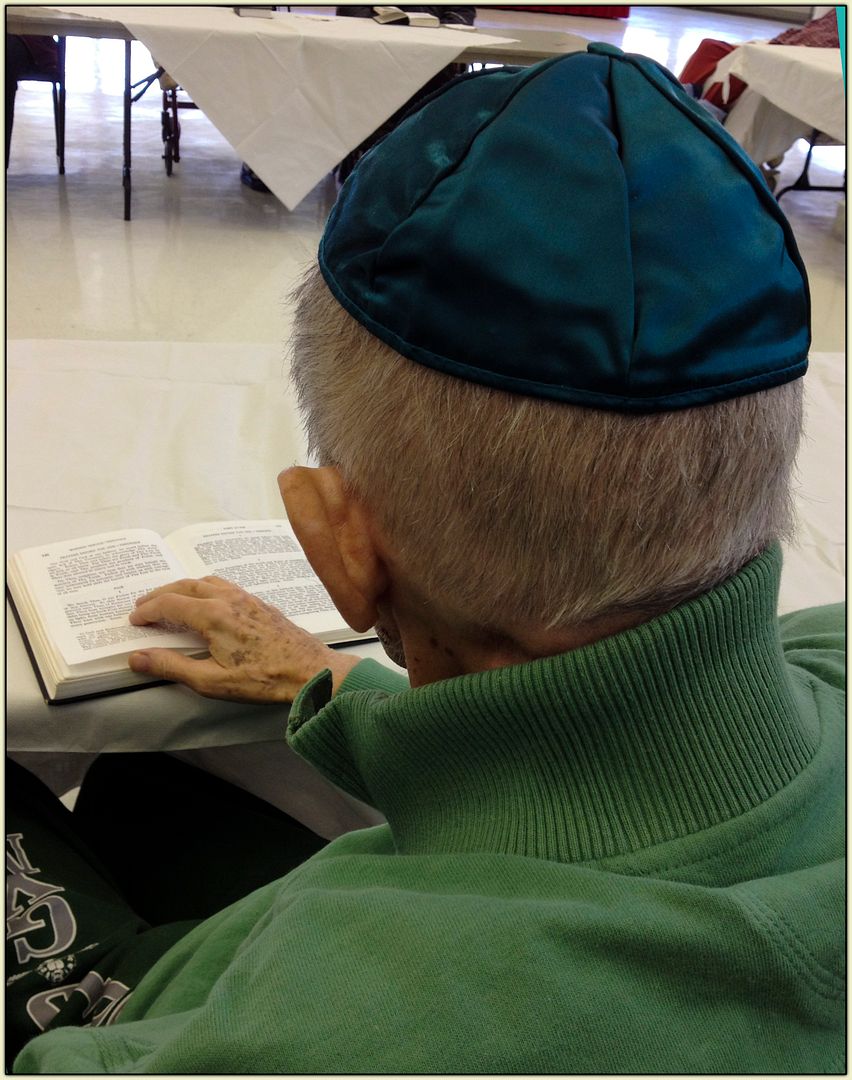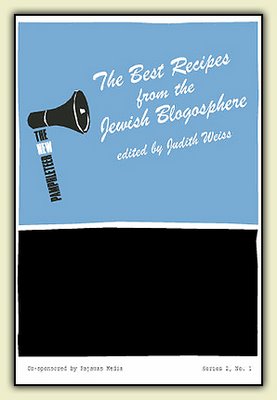
Eli (z''l) attends Shabbat services at the Veterans Home, December 2012.
In Jewish tradition, a person mourns a deceased relative for a prescribed period: A seven-day period of intense bereavement (shiva) is followed by thirty days (sh’loshim) during which certain restrictions are observed. A mourner does not go to movies, concerts, or other amusements; males typically do not shave. In addition, the mourner recites Kaddish.
Kaddish yatom - the form of Kaddish recited by mourners - does not mention death or loss. It is a doxology, a verbal expression of praise to God. In its various forms, Kaddish is used as a sort of punctuation for worship, indicating a transition between one part of the service and another. It’s not obvious why Kaddish should have especial significance for mourners, but perhaps it is because the highest evidence of one’s love for God is the ability to speak His praise after suffering loss.
The customs one observes for mourning a parent are different than those for other relatives. One mourns for a full year, not just thirty days - but recites Kaddish daily for only eleven months of that year. Why stop at eleven months? The Sages believed that the souls of the deceased endure a year-long period of judgment after death, but that only the wicked are judged for the full year, the righteous presumably being allowed to ascend to Olam ha-Ba - the Next World - after only eleven months. The implicit presumption is therefore that one’s parents, because they are emphatically not wicked, only need eleven months of human intercession for their souls.
Both my parents would have dismissed all of that as complete mumbo-jumbo. They were very aware - and proud - of their Jewish identity, whilst simultaneously being quite irreligious.
My Dad - Eli, hizzownself, of blessèd memory - would inevitably decline my invitations to attend morning Minyan with me on those infrequent occasions when he would visit us in Atlanta. “It’s not my thing,” he would protest. But in the last years of his life, after he suffered the stroke that eventually landed him in the Long Island State Veterans Home, he found religion of a sort, deriving a measure of enjoyment from the Sabbath services a visiting rabbi would conduct Friday mornings. “I can’t stand all that Hebrew,” he would tell me, “but I really like how the rabbi explains the weekly Torah portion.”
Today was the last day of my eleven-month Kaddish recitation period. I marked the occasion by leading the morning service and then taking the Minyan Boyz out to breakfast afterward... a small “thank you” for being present in sufficient numbers to enable me to fulfill my obligation of reciting Kaddish. The next time I say Kaddish for Dad will be at his Yahrzeit, the anniversary of his passing, a month from now.
If I truly believed in all of my ancestral traditions, I would be able to take comfort in the knowledge that this is the day on which my father’s soul finally is granted permission to ascend to the Next Level of post-Earthly existence. But that doesn’t comfort me much... because I am a skeptic, and I know mumbo-jumbo when I see it. And Dad would agree.
No: I take comfort in knowing that my Dad had a long and (mostly) happy life, and that he instilled in me a certain love for my family, my country, and the people I come from. And I take comfort in knowing about my people’s traditions, even if I am generally not scrupulous about following all of our rules and regulations. (I like to be educated so that I know what laws I am violating at any given moment.) I am grateful that he was who he was, and that in his final years he himself was comforted by my visits and the memories we would share.
Ave atque vale, Daddy. I’ll never forget you.




















1 comment:
Hard to believe the yahrzeit is almost upon you. Even though I'm at a remove, it still feels as though it was only yesterday that your dad stepped through the Great Door. As always, I'm sorry for your loss, but I'm glad you can remember and keep the good things about your father's life.
Hugs from across the Pacific.
Post a Comment